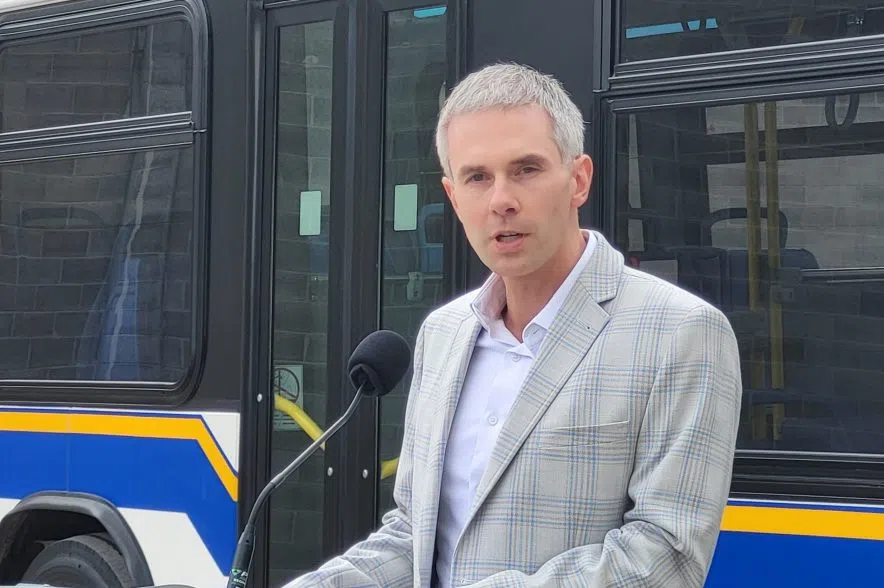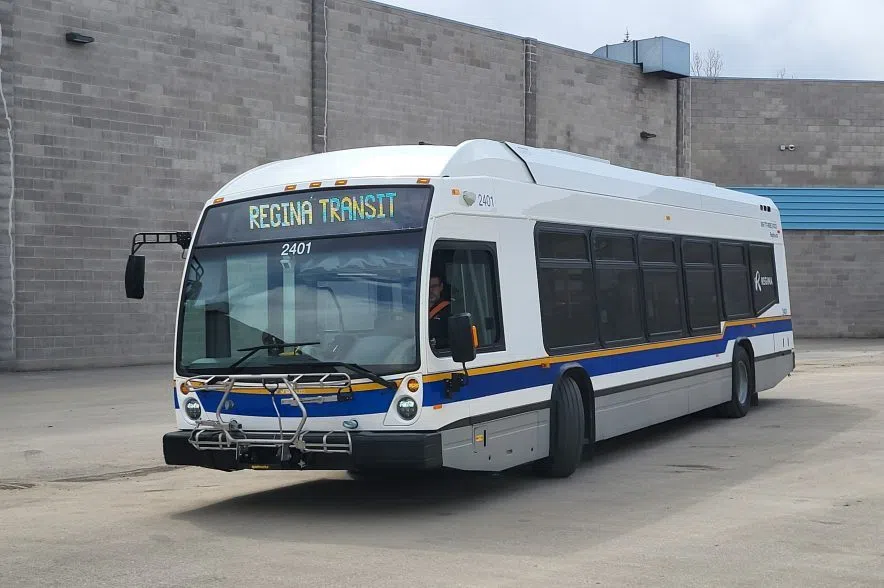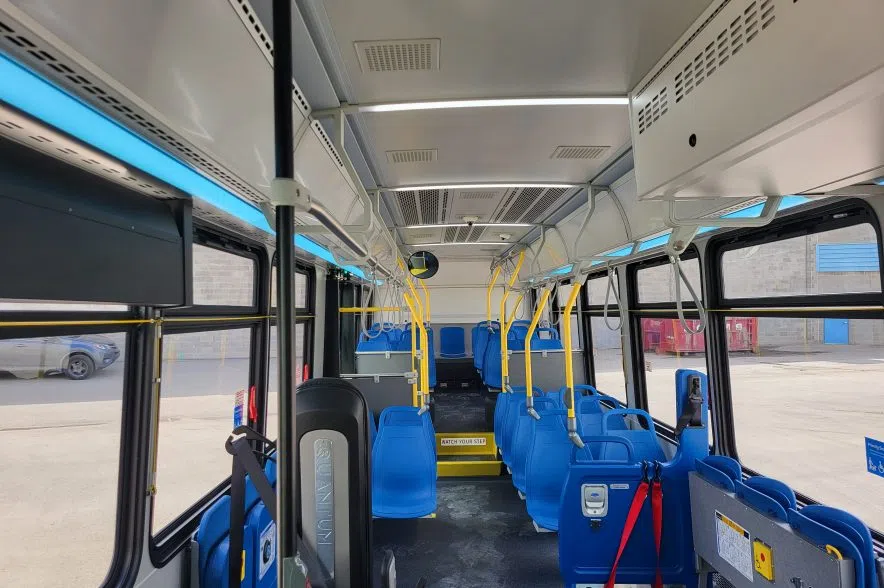Regina’s new electric buses are hitting the road starting next week.
The City of Regina unveiled seven zero-emission buses on Thursday that will replace existing diesel-powered ones and will be added to the city’s fleet.
The city has 123 buses in total.
Read more:
- Free youth transit pilot, flag protocol on Regina council agenda
- City of Regina to get more than $26M from Ottawa for electric buses
- Regina Transit ditches R-Card for new Umo app with fare capping
Transit Director Nathan Luhnig said the city will save about $32,000 per bus per year for every electric bus on the road instead of a diesel bus.
“When you look at how much they cost to operate – so the maintenance costs – it’s cheaper to operate an electric bus,” he said.

Nathan Luhnig said the electric buses are most cost-effective than diesel-powered buses. (Daniel Reech/980 CJME)
Luhnig stated that it costs about $177,000 to operate a diesel bus over a year.
The new buses look similar to the old, but they’ll be a bit quieter, according to Luhnig.
Regina joins cities like Edmonton, Saskatoon, and Winnipeg that use electric buses – some of which were consulted with before Regina made the purchase.
The seven buses were bought for $1.37 million each. The City of Regina split the bill with the Government of Canada.
In 2026, the city will receive an additional 13 electric buses, bumping up the electric fleet’s total to 20.
The 20 buses and infrastructure to support their charging stations will cost $52.2 million, split evenly with the federal government.
Luhnig said the lifespan for the electric buses is 17 years, the same as the diesel buses.
The city director said the length of how far an electric bus can drive decreases in the wintertime, but this will not affect the majority of its routes within the city.
“The range of the buses is 340 kilometres a day on a single charge. When it gets very cold, it can go down to 200 kilometres in a day. So when we’re planning, we would make sure that those routes wouldn’t exceed the 200 kilometre radius,” Luhnig said.
“There are diesel heaters as well, so when it gets really cold, it’ll help to use that rather than just reusing battery power specifically.”
There are 10 charging stations at the city’s maintenance facility, but the federal funding allows for up to 60.
Luhnig said the electric buses are about 4,000 lbs more than a standard bus, but still falls within the acceptable limit to prevent wear and tear on the roads.












